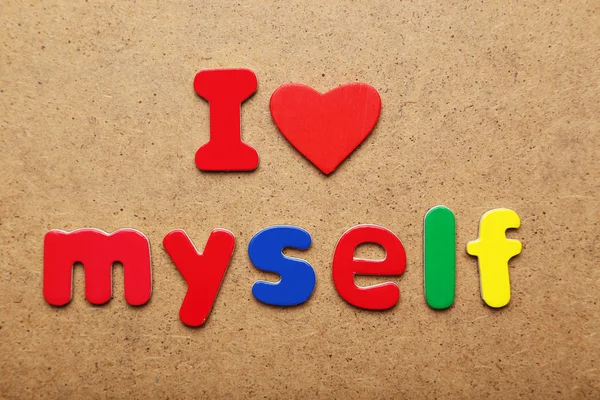9 Common Daily Bad Habits That Can Impact You Negatively In Your Life
In our fast-paced modern world, habits shape nearly every part of our lives. Some habits fuel growth, productivity, and happiness, while others quietly chip away at our mental, emotional, and physical health.
Often, these bad habits creep in unnoticed — disguised as convenience, comfort, or just “normal behavior.”
But over time, they can drain your energy, dull your motivation, and limit your potential. The truth is: small habits practiced daily can create big results — either positive or negative.
Recognizing and replacing harmful routines is the first step toward a healthier, more fulfilling life.
1. Irregular Eating or Skipping Meals

Irregular eating habits — skipping meals, overeating late at night, or eating at inconsistent times — can seriously disrupt your body’s circadianrhythm.
When your eating schedule is erratic, your metabolism slows down, causing energy dips, digestive issues, and unhealthy cravings. It can also affect blood sugar levels, leading to fatigue and irritability
. Over time, irregular eating patterns contribute to weight gain, poor gut health, and hormonal imbalance.
To maintain steady energy and focus, try eating balanced meals at regular intervals. Consistency helps your body function efficiently and supports long-term health and well-being.
2. Neglecting Self-Care and Boundaries

Ignoring self-care and failing to set boundaries can slowly drain your energy and emotional resilience. When you constantly prioritize others’ needs over your own, burnout becomes inevitable.
Lack of boundaries often leads to stress, resentment, and feeling overwhelmed, while neglecting self-care weakens both mental and physical health. Simple practices like taking breaks, saying “no” when necessary, and dedicating time for relaxation or hobbies can restore balance.
Remember, self-care isn’t selfish — it’s essential. Setting healthy boundaries allows you to protect your peace, maintain focus, and show up as your best self in every area of life.
3. Poor Diet and Dehydration

A poor diet combined with dehydration can have a serious impact on your overall health and daily performance. Consuming too much processed food, sugar, and unhealthy fats deprives your body of the essential nutrients it needs to function properly.
When this is paired with not drinking enough water, it leads to fatigue, headaches, poor digestion, and dull skin. Dehydration also affects concentration and mood, making you feel sluggish and irritable.
To stay healthy and energized, focus on balanced meals rich in fruits, vegetables, lean proteins, and whole grains, and drink plenty of water throughout the day to stay hydrated.
4. Sitting Too Long or Moving Too Little
Spending long hours sitting or not moving enough has become one of the most common yet harmful daily habits. Whether it’s working at a desk, watching TV, or scrolling on your phone, prolonged sitting slows your metabolism, weakens muscles, and increases the risk of obesity, diabetes, and heart problems.
It can also cause stiffness, back pain, and poor posture. Mentally, a sedentary lifestyle reduces energy and focus, leaving you feeling sluggish and unmotivated.
To counter this, take short breaks every hour, stretch, or go for brief walks. Even small bursts of physical activity throughout the day can improve circulation, posture, and overall well-being.
5. Constantly Checking Your Phone and Social Media

In the digital era, our phones have become extensions of our hands. We wake up and immediately scroll through notifications, social feeds, or emails. While staying connected seems harmless, this constant digital stimulation has serious consequences.
Excessive phone use rewires your brain’s reward system. Every “like” or message gives a small dopamine hit, training you to crave more validation and instant gratification.
This habit increases anxiety, shortens attention span, and makes deep focus difficult.
Studies have shown that heavy social media users are more prone to feelings of loneliness, comparison, and low self-esteem.
Over time, it can also contribute to sleep problems, poor posture, and mental fatigue.
6. Lack of Proper Sleep

Not getting enough quality sleep can seriously affect your body and mind. Sleep is when your body repairs itself, balances hormones, and restores energy.
When you consistently stay up late or sleep less than required, it leads to fatigue, poor concentration, mood swings, and weakened immunity.
Over time, sleep deprivation increases the risk of anxiety, depression, weight gain, and heart issues. It also reduces productivity and emotional stability, making daily challenges feel harder to handle.
Prioritize a consistent sleep schedule, avoid screens before bed, and create a relaxing bedtime routine to help your body rest, recover, and perform at its best.
7. Multitasking and Over workload

Trying to juggle multiple tasks at once or constantly overloading yourself with work may seem productive, but it often leads to burnout and decreased efficiency.
When your attention is divided, the quality of your work suffers, and stress levels rise. Multitasking strains your brain, causing mental fatigue and making it harder to focus or think creatively.
Over time, this habit can lead to anxiety, irritability, and even physical exhaustion.
Instead, prioritize tasks, take short breaks, and focus on one thing at a time. Working smarter — not harder — helps maintain balance, improves performance, and protects your mental and physical well-being.
8. Negative Self-Talk and Overthinking

Your inner voice is powerful. If you constantly criticize yourself, replay past mistakes, or assume the worst, you’re not just thinking negatively — you’re shaping your emotional reality.
Negative self-talk erodes confidence, increases stress, and can lead to anxiety or depression. When you constantly tell yourself, “I’m not good enough,” your brain starts to believe it.
This mindset also limits personal growth because fear of failure keeps you from taking healthy risks or embracing new opportunities.
Overthinking adds to this mental clutter, trapping you in cycles of worry and indecision.
9. Comparing Yourself to Others

In the social media era, it’s easy to fall into the trap of comparison — measuring your worth against someone else’s highlight reel. Whether it’s career success, body image, or lifestyle, comparison is a habit that silently drains happiness.
Comparison fosters ego, jealousy, inadequacy, and resentment. It makes you focus on what you lack instead of appreciating what you have.
Over time, this mindset steals joy and disconnects you from your authentic goals. Psychologically, it can lead to chronic dissatisfaction and even depression.
The Domino Effect of Bad Habits
Each of these habits may seem minor, but together, they create a powerful ripple effect. Poor sleep leads to fatigue, which increases procrastination. Excessive phone use fuels comparison and negative thinking.
These habits feed off one another, trapping you in a cycle of stress and self-doubt.
The good news? The reverse is also true. Positive habits compound, too. One small change — like sleeping better or taking phone-free walks — can ignite momentum for broader transformation.
Simple Steps to Replace Bad Habits
Breaking habits doesn’t require dramatic change overnight. It’s about consistent, small actions that shift your mindset and behavior.
1. Identify your triggers: Notice when and why the habit occurs (boredom, stress, fatigue).
2. Replace, don’t erase: Swap a harmful habit for a healthy one — for example, journaling instead of scrolling.
3. Start small: Focus on one habit at a time.
4. Track progress: Use a journal or habit tracker app to stay accountable.
5. Reward yourself: Acknowledge small victories — they motivate long-term consistency.
Transformation happens when awareness meets action. You don’t need perfection — you just need persistence.
Wrapping up
Bad habits are part of being human, but they don’t have to define you. Every day offers a chance to make better choices — ones that nourish your mind, body, and spirit. Whether it’s improving sleep, reducing screen time, or embracing positivity, the smallest shifts can create lasting impact.
Breaking free from negative routines isn’t about self-criticism; it’s about self-awareness. Once you recognize how these habits affect your well-being, you gain the power to rewrite your story — one conscious action at a time.
So start today. Choose awareness over autopilot, discipline over distraction, and growth over comfort. Your future self will thank you.





